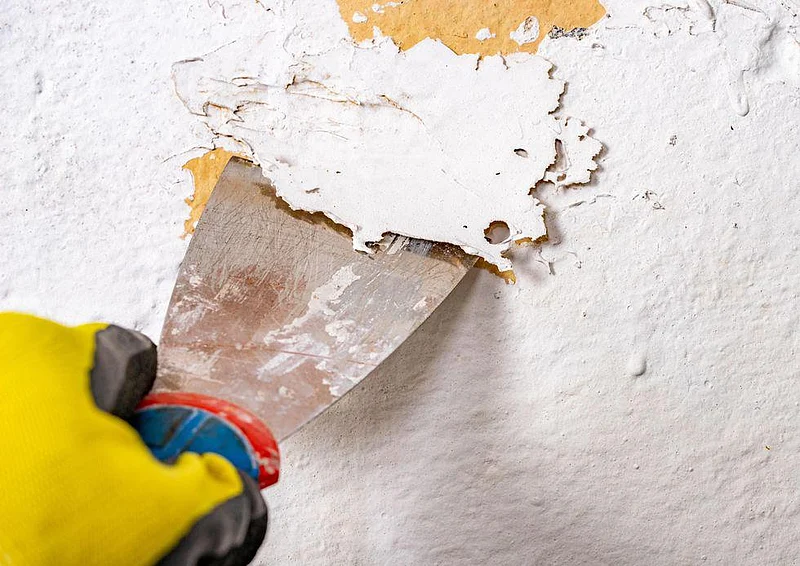Get Healthy!
Results for search "Learning Disabilities: Misc.".
Health News Results - 11
MONDAY, Dec. 8, 2025 (HealthDay News) — Video games often have a bad reputation as being a distraction, but a new study suggests they may help kids build important science skills.
University of Georgia researchers created an educational video game that helps elementary school students learn about the human body, health and how to use evidence the same way scientists do.
...
- I. Edwards HealthDay Reporter
- |
- December 8, 2025
- |
- Full Page
The Biden administration on Monday awarded $58 million in grants to help schools and daycare centers remove lead from drinking water.
The announcement came during an event in Boston.
"I am excited to join local leaders in Boston to announce $58 million in grant funding that can be used to test for lead in drinking water, identify potential sources, and remove those sour...
- HealthDay Reporter
- Steven Reinberg
- |
- July 25, 2023
- |
- Full Page
More kids in the United States are getting a developmental disability diagnosis, with prevalence close to 9% in 2021, the U.S. Centers for Disease Control and Prevention reports.
Among 3- to 17-year-olds, 8.56% have ever been diagnosed with a developmental disability, compared to 7.4% in 2019, according to the agency's National Health Interview Survey.
The diagnoses are far more com...
- HealthDay Reporter
- Cara Murez
- |
- July 13, 2023
- |
- Full Page
Each year, about 140 kids in the United States are diagnosed with a craniopharyngioma, a typically non-cancerous brain tumor that develops near the pituitary gland at the base of the brain.
Doctors treat craniopharyngiomas with surgery to remove the entire tumor or a less aggressive surgery followed by radiation to kill any remaining cells.
Now, a
Lead is known to damage young children's brains, and a new study suggests the effects may still be apparent in old age.
Researchers found that among nearly 1,100 older U.S. adults, those who grew up in cities with lead-contaminated drinking water generally scored worse on tests of memory and thinking skills.
The findings, experts said, suggest that older adults who were exposed to l...
- HealthDay Reporter
- Amy Norton
- |
- November 10, 2022
- |
- Full Page
Many parents of preschoolers insist that naps are essential to recharge their little ones during the day and improve their mood.
Turns out that daytime shut-eye may also boost early literacy skills.
New research by scholars in Australia and England suggests that naps help preschoolers map...
- HealthDay Reporter
- Cara Murez
- |
- March 30, 2022
- |
- Full Page
It is a fear that millions of parents have been harboring since the pandemic began: Will their children fall behind in school due to disruptions caused by lockdowns, closings and social distancing?
A new U.S. poll finds that fear is widespread, with just over half of more than 3,000 parents and caregivers of children under 18 worried that their youngest school-aged child was not keeping u...
- HealthDay Reporter
- Robert Preidt
- |
- October 20, 2021
- |
- Full Page
Researchers have created a six-stage process to help families of children with attention deficit hyperactivity disorder (ADHD) deal with the disorder.
"This framework is family-centered, focused on breaking down the barriers that families face from before diagnosis to preparing children with ADHD for the future," said Dr. Andrea Spencer, director of the Reach for ADHD Research Program at ...
- HealthDay Reporter
- Robert Preidt
- |
- October 20, 2021
- |
- Full Page
Preschoolers with attention deficit hyperactivity disorder (ADHD) rarely receive the gold-standard treatment recommended by the American Academy of Pediatrics (AAP) for their condition, a new study reports.
The AAP recommends a behavioral therapy technique called "parent training in behavior management," or PTBM, as first-line treatment for ADHD kids ages 4 and 5.
But only 1 of eve...
- HealthDay Reporter
- Dennis Thompson
- |
- October 19, 2021
- |
- Full Page
A small fix might make reading a bit easier for kids with dyslexia, as well as their classmates: Increasing the amount of space between printed letters.
That's the finding of a small study that tested the effects of "extra-large" letter spacing on school children's reading speed and accur...
- HealthDay Reporter
- Amy Norton
- |
- October 1, 2021
- |
- Full Page
More than 50% of American children have detectable blood lead levels, a new study reveals. And young children who live in places with lots of pre-1950s housing and low incomes have the greatest risk.
"Public health authorities have worked commendably to reduce lead exposure for decades, and yet, substantial risk remains," said study co-author Dr. Harvey Kaufman, head of health trends rese...
- HealthDay Reporter
- Steven Reinberg
- |
- September 27, 2021
- |
- Full Page










